Racism
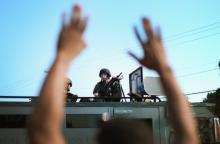
Over the past three weeks there have been four separate incidents that have led to the deaths of four unarmed black men at the hands of police. For many black people, myself included, the moments following these tragic events are filled with despair, sorrow, anger, and frustration. Each incident serves as a reminder that as a black man in America, my life holds little to no value in the eyes of the general public. To be young and black in the United States means to live under constant pressure, something most non-black American citizens know nothing about.
For the majority of black people, the police do not represent protection or safety, rather they are a menacing force that terrorize those they are supposed to serve. I have never felt safe in the presence of law enforcement. In fact, whenever police are in close proximity to me, I feel in danger. Whenever a cop drives behind me or beside me I feel anxious, not protected.
Is my paranoia justified?


There comes a time in every society when it must face its shadow side — and deal with it.
Societies have myths, legends, and superheroes that lay the foundations for national identity, reinforce beliefs about the self and the other, and shape nations’ collective memory. They exist to make us feel good about ourselves, but as a result, they lie to us and distort collective memory.
As prophets did in the days of abolition, the anti-lynching movement, and the Civil Rights movement, modern-day leaders, like Michelle Alexander, have traversed the country shining light on the myth of equal justice in our justice system.
And on Tuesday, the unlikely duo of Sens. Cory Booker (D – N.J.) and Rand Paul (R – Ky.) joined together to address this myth by introducing the REDEEM Act.
"I will work with anyone, from any party, to make a difference for the people of New Jersey, and this bipartisan legislation does just that," Booker said in a news release. "The REDEEM Act will ensure that our tax dollars are being used in smarter, more productive ways. It will also establish much-needed sensible reforms that keep kids out of the adult correctional system, protect their privacy so a youthful mistake can remain a youthful mistake, and help make it less likely that low-level adult offenders reoffend."

A GROUP of Native Americans appeared before the Trademark Trial and Appeal Board to argue that “Redskins,” the name of Washington, D.C.’s football team, is racist and not deserving of federal trademark protection. Federal law states that a company name may not be “scandalous” or “disparaging.” ...
Offering an opinion is Chief Billy Redwing Tayac of the Piscataway Indian Nation, a Native American people who have been in the Washington area for roughly 10,000 years longer than the football team.
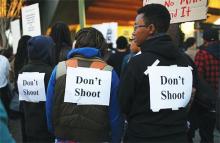
AFRICAN AMERICANS around the country are finding it is dangerous to call 911. Jack Lamar Roberson’s family in Waycross, Ga., discovered this the hard way when they placed an urgent call to 911 in October 2013 because his fiancée thought that he had taken an overdose of diabetes medicine.
Instead of sending EMTs, the dispatcher sent the police. Within 20 seconds of being in the house, police shot Roberson nine times, with bullets striking his back, arms, chest, and head as he held his arms up in the air. Although he was a veteran, he did not die from bullet wounds at the hands of strangers in a foreign land. Instead, white police gunned him down in his home.
Killings like this—which could be called anti-black hate crimes by police—are far too common. “Operation Ghetto Storm,” a 2012 report by the Malcolm X Grassroots Project, revealed that white police officers, security guards, or vigilantes kill an unarmed black man, woman, or child every 28 hours in the U.S. In 2012, police officers shot 57 people in Chicago—50 were black, two were white. Miami police officers killed seven black men within eight months in 2011. The Houston-based African-American News & Issues headlined an article this spring: “Open Season on Blacks in Texas: Cops Are Shooting First & Not Asking Questions.”
These police killings of black people emerge out of a culture and system of white supremacy. In such a context, police killing of black people is not a black problem. It is an American problem that shreds the curtains of democracy.
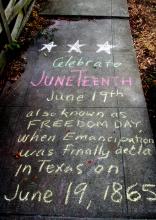
Sometimes it is hard to know even where to begin. We stare at this System, this complex web of human behaviors, and the institutions erected to memorialize them, and we simply do not know where to begin. How do we fix it?
"That's just the way it is," we say. "Some things will never change."
Systems are strange beasts. They take incredible human investment to maintain. They are the spaces by which many of us come to know ourselves, to know our place in this world. We identify ourselves in relationship to them. And yet they are so close to us as to be rendered invisible.
Until they hurt us. Until they step on us, exclude us, enslave us, brutalize us.
And this is when it gets interesting, of course; this is when they do their real work, these systems.

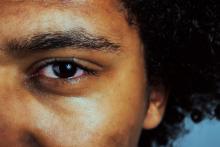
Does Jesus love African-American males? Then why aren’t we telling them so?!
I recently held a Town Hall Meeting at my church in my hometown of Madison, Wis., regarding the blaring racial disparity between whites and African Americans. This gathering attracted about 650 people who wanted to hear my thoughts after reading my "Justified Anger ” cover essay in a local newspaper. It appears that when one considers the economic, academic, arrest and incarceration disparities between African Americans and whites in Madison (and surrounding Dane County), there is no bleaker place for African Americans to be in the entire country than Madison. Although Madison — with its great university, beautiful lakes, bike paths, and educated residents — typically receives high marks as being among the best mid-sized American cities in which to live, it is now developing a different reputation about life here. Sadly, our community has been nationally deemed as ground zero for the disintegration of African-American males!
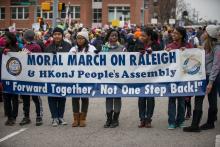
I believe that deep within our being is a longing for a moral compass. For those of us who are moved by the cries of our sisters and brothers, we know that, like justice, the acts of caring for the vulnerable, embracing the stranger, healing the sick, protecting workers, welcoming and being fair to all members of the human family, and educating all children should never be relegated to the margins of our social consciousness. These are not just policy issues; these are not issues for some left vs. right debate; these are the centerpieces of our deepest traditions of our faiths, of our values, of our sense of morality and righteousness.
We must remind those who make decisions regarding public policy what the prophet Isaiah said "Woe unto those who legislate evil ... Rob the poor of their rights ... make children and women their prey." Isaiah 10: 1-2
Martin Luther King, Jr. said 46 years ago in one of his last sermons that if you ignore the poor, one day the whole system will collapse and implode. The costs are too high if we don’t address systemic racism and poverty. It costs us our soul as a nation. Every time we fail to educate a child on the front side of life, it costs us on the back side — financially and morally.
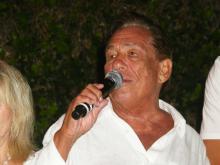
Dear White People,
We need to take a long, painful look in the mirror. The image we see will make us uncomfortable, but, tragically, it is us.
The image staring you back at you is the image of Donald Sterling.
We have found a new sense of self-righteousness by uniting against Sterling for his racist comments. All of us white people can agree that Sterling is a despicable human being and he deserved to be banned from the NBA for life and to be fined.
We are morally outraged. We hate Sterling with a united and perfect hatred.
But make no mistake, we are Donald Sterling.

The ugly racial statements of the Los Angeles Clippers owner Donald Sterling sparked a series of hopefully historic events over the last several days. The press conferences on Tuesday by NBA Commissioner Adam Silver and by Sacramento Mayor Kevin Johnson — a former NBA star and the player’s representative in this crisis—are worthy of deeper reflection.
With both passion and outrage in his face, NBA Commissioner Silver banned Sterling for life from both the L.A. Clippers and the NBA for his racist comments about African-Americans. Sterling’s despicable racial opinions made him the ugly and ignorant face of white racism, a dishonor undoubtedly earned due to a his personal history of hateful racial discrimination.



Donald Sterling, eccentric billionaire and owner – at least for the moment – of the Los Angeles Clippers basketball team, learned firsthand the weight of his own words on Tuesday. After allegedly being recorded making numerous racist remarks about African-Americans (both on his team and otherwise), the National Basketball Association handed him a lifetime suspension from association with his own team, along with a $2.5 million fine.
Though Sterling’s comments were highly inflammatory and distasteful, the NBA’s swift and severe consequences helps contain the damage, keeping the poison from infecting the league’s reputation any more than it already has. And good riddance to such attitudes, as they should find no audience in any public forum, let alone in a sport where a majority of the players are black.
Sterling’s consequence is not why I feel pity for him. He got what he deserved, and the stigma that goes with such shunning likely will weigh on his future business ventures. What saddens me for him is the sense I have of him as an individual, having read extensively about him online, and having listened to the audiotapes attributed to him.

I almost felt sorry for Donald Sterling when I listened to the original recording of an alleged argument between him and his ex-girlfriend, V. Stiviano, released by TMZ Sports on Saturday. The argument centers around Stivianio’s friendship with black and Hispanic people. The desperation in Sterling’s alleged voice is palpable as he tries to scurry like a cockroach exposed by the light, but doesn’t get away.
The day after TMZ released the recording, Deadspin released an extended version of the tiff with transcript included. In this recording, the cockroach is caught for examination under the proverbial glass. From the Deadspin report:
V: I don't understand. I don't see your views. I wasn't raised the way you were raised.
DS: Well then, if you don't feel—don't come to my games. Don't bring black people, and don't come.
V: Do you know that you have a whole team that's black, that plays for you?
DS: You just, do I know? I support them and give them food, and clothes, and cars, and houses. Who gives it to them? Does someone else give it to them?...
Sterling does not “support them.” He pays them for work. He does not “give them food.” He gives them a wage for employment. He does not give his players “clothes, and cars, and houses.” The Clippers Corporation signs a paycheck, made possible by advertising dollars and ticket sales attracted by the highly skilled labor of the mostly black and brown Clippers players themselves.

What more perfect a passage to enliven our Earth Day celebrations than Romans 8:20-25?
Paul's letter to the Romans was certainly not an exhortation to deepen creation care by weighting it with environmental justice. It wasn't an exhortation for the middle-class church to listen to the groaning of people under the bondage of environmental racism. It wasn't intended to paint a picture of the intersection of climate change, poverty, and racism.
But we — two evangelical activists — are just foolish enough to give all that a try in this short space!
Our dear Apostle Paul in his letter to the Romans paints a picture of the new age inaugurated by Jesus' death and resurrection. Jesus has taken sin – that which infiltrated the world (5:12), enslaved the world (6:6, 17-18), and brought death and destruction (7:8-14) — and had victory over it. By our death in baptism and resurrection with Christ, we participate in his victory over sin (6:4). This is a new age, we put on our new selves, we live with the (re)new(ed) creation ahead of us.

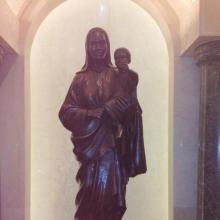
Are Black people mentioned in the Bible? Absolutely. The Bible is a multicultural book. This statement may sound controversial but archeology, history, and the text prove it to be true. It may be difficult to see the black presence in the Bible because you won’t read the terms black or African but you will read the terms Ethiopians, Cushites, Egyptians, and other tribal terms. The Roman Catacombs show biblical scenes painted by first- and second-century persecuted Christians, and their paintings clearly show people of color. What would Roman Christians gain from painting these characters black? What did these early Christians know and accept that seems unbelievable today? It appears that our faith has been distorted. One of the effects of racism is the whitewashing of history and sadly this has taken place even in our biblical studies.

"I bet if I were white then I'd be better off … Isn’t that true?” - Idris
A 9-year-old African-American boy lay on the couch, rubbing his head, and told his dad that if he just went to another school, life would be better. If he were just white, life would be better. He clarified, “I’m not saying I want to … but isn’t that right? That’s what everyone else is saying.”
When a 9-year-old boy can see the sad reality of white privilege and understand that the color of your skin is what defines you in our society, we have a serious problem. We can talk about the progress we have made to move civil rights forward over the past 50 years, and many in my generation are grateful for this movement, but we have a long, long way to go.
According to the Black Boys Report, the high school graduation rate for black males is at 52 percent, while white students graduate at a rate of 78 percent. As a nation, we are proud of our success and power, yet our education statistics do not predict the kind of achievement that we expect for the future of our society. In the midst of a major demographics shift, our nation can no longer afford to accept the growing education gap that has become normative in recent years.
American Promise is a documentary following the lives of two African-American boys from kindergarten through high school. The boys attend Dalton, a private school in the upper east side of Manhattan. As Idris and Seun make their way through years of schooling, the film chronicles the truths of our education system and the lack of social and emotional support offered to students of color in America’s schools. The filmmakers, Michèle Stephenson and Joe Brewster, are the parents of Idris. Through their son’s journey, the hardships of being an African-American boy growing up in today’s society are documented, and struggles of parenting are examined through an entirely new lens.
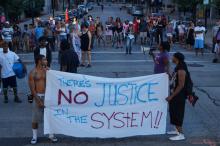
The problem is the systemic injustice inherent in Stand Your Ground laws: just feeling like you are being threatened can justify your response in “self-defense.” Under Florida self-defense laws now, someone can use even lethal force if they “reasonably believe” it is necessary to defend their lives or avoid great harm. How does a jury decide what a “reasonable person” would do under all the circumstances? Even if Dunn really believed there was a gun in the black teenagers’ car and there wasn’t one, he could still be justified in shooting into the car according to Stand Your Ground. The New York Times quoted Mary Anne Franks, an associate law professor at the University of Miami saying, “This trial is indicative of how much of a problem Stand Your Ground laws really do create … By the time you have an incident like this and ask a jury to look at the facts, it’s difficult to re-create the situation and determine the reasonableness of a defendant’s fear.” And unfortunately, the law creates an opportunity for racial factors — whether they’re conscious or not — to trump facts when even one juror who is sympathetic to a defendant’s “reasonable” fear can prevent prosecution.